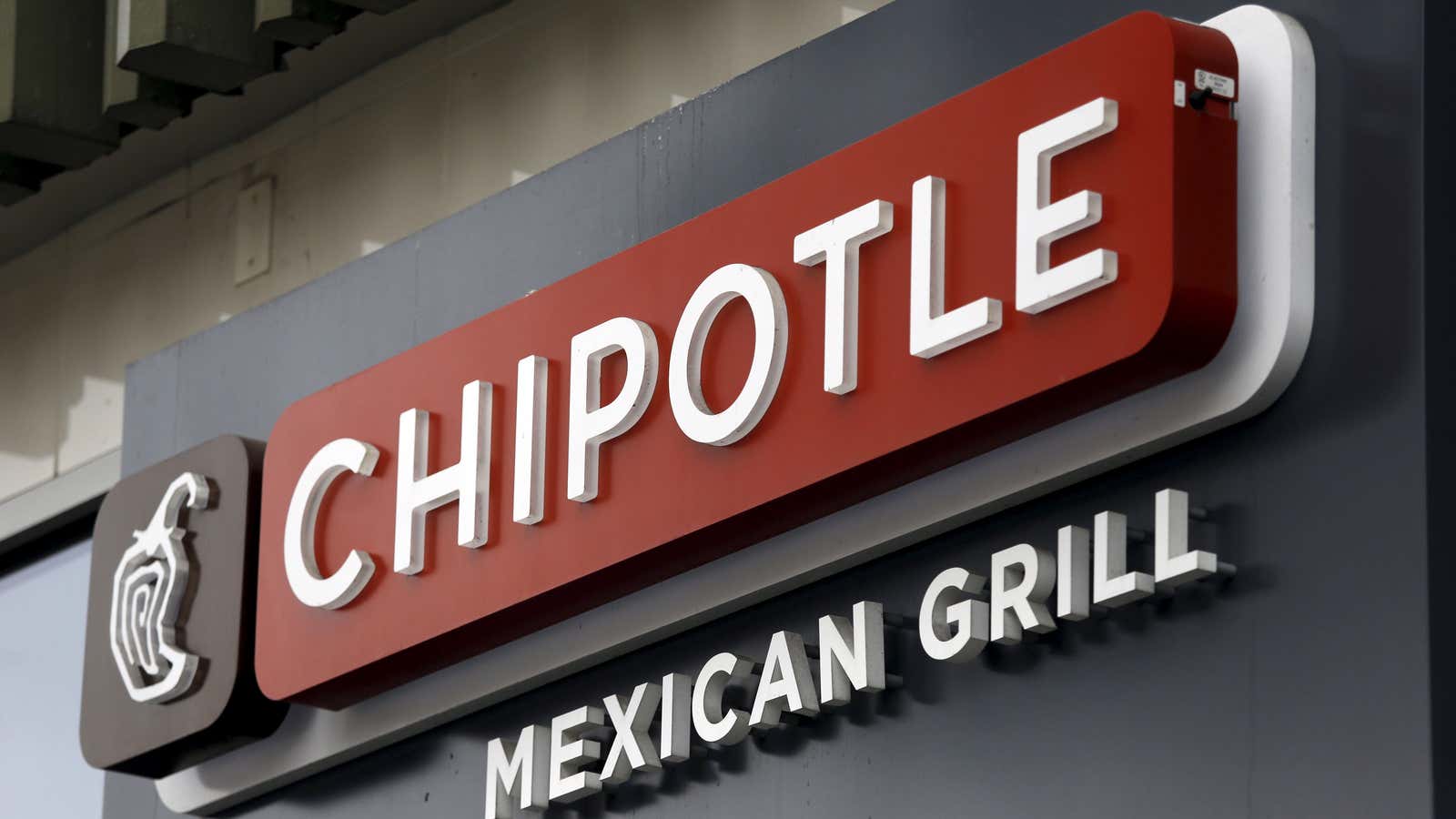Chipotle’s first decade was nothing short of spectacular. Since it went public in January 2006, sales at Chipotles open at least 13 months have exclusively gone up. The growth in some quarters was more impressive than in others. But for 10 years, when the end of a three-month period rolled around, Chipotle had only good news for investors.
It’s sort of tragically poetic, then, that Chipotle will start its second decade of public life with its worst results ever.
After the close of US trading today (Feb. 2), Chipotle will reveal to investors exactly how much damage E. coli and other health scares did to its business over the last three months. It’s bound to be ugly. In early January, Chipotle said in an SEC filing that same-store sales likely fell as much as 14.6% in the 2015 year-end quarter. That’s a precipitous dropoff for any company, but particularly so for one that went an entire decade without missing a beat.
Chipotle has braced itself for a tough year. The stock has fallen more than 30% since the end of October 2015, when health officials first began tracing reports of E. coli to its restaurants. At an investor conference last month, chief financial officer Jack Hartung emphasized that 2016 would be “messy” as Chipotle worked to bring customers back to stores. “We’re not going to be the efficient business model that everyone has come to know Chipotle has become during 2016,” he said.
On the bright side, the US Centers for Disease Control and Prevention announced on Monday (Feb. 1) that the chain’s two E. coli outbreaks “appear to be over.” Altogether, the two outbreaks sickened 60 people across 14 states, and hospitalized 22. No deaths were reported from either incident.
“We are pleased that the CDC has concluded its investigation,” Chipotle spokesman Chris Arnold said in a statement. The company’s stock rose 4.3% on Monday.
While investigators never concluded which ingredients caused Chipotle’s E. coli woes, the chain has been working hard to overhaul its food handling protocols. Chipotle is shifting more food prep to centralized kitchens—a strategy long employed by fast-food companies—and adding steps to screen small batches of produce for pathogens. The overhaul has also forced Chipotle to dial back commitments to sustainable and local produce, and to face the fact that “food with integrity” isn’t always synonymous with “food with safety.”
As for the impending earnings report, it’s possible that the worst is over. If Chipotle’s results are in line with its January projections, the market in theory should have already priced that in. Still, you never know. A 14.6% sales drop is pretty ugly—even when you saw it coming.
